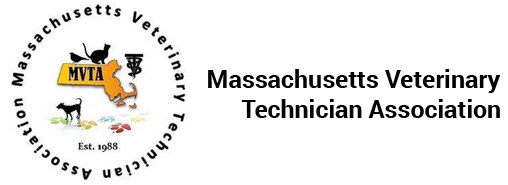|
An act regulating the practice and licensure of veterinary technicians.
Our bill has been submitted for the 2025 legislative session.
H.4278 was reported out of committee as a rewrite of our House-submitted bill, H.407. H.4278 is now in House Ways & Means (HWM). MVTA has worked with HW&M staff and our allies to recommend limited, but needed, amendments. We are now waiting for the bill to be reported to the House floor.
Our Senate-submitted bill, S.277, was reported out of committee separately, without changes. S.277 is now in Senate Ways & Means (SWM). We are in touch with the sponsor and SWM staff. Between the two bills, we're working to get one to the Governor's desk.
This bill will not pass without the support of our members. Please be on the lookout for "Call to Action" emails and reach out to your representatives and senators when needed. If you have any questions about the bill or the process, please reach out to Legislative Committee Chair, Erin Spencer, at [email protected].
Erin Spencer, CVT, VTS(ECC) Legislation Chair
- This bill will amend the Board of Registration in Veterinary Medicine by adding members, appointed by the governor, who are licensed veterinary technicians.
- THIS IS A LICENSURE BILL. The bill directs the Board of Registration in Veterinary Medicine to promulgate rules and regulations to license and register veterinary technicians in Massachusetts.
- The Board will develop and implement quality educational and practice standards for veterinary technicians within the practice of veterinary medicine. This change is needed because currently in Massachusetts, any person, with any level of experience, can work in a veterinary practice and be called a veterinary technician.
- Complex and costly veterinary medical services should be performed by educated, trained, and licensed veterinary technicians.
- Inducing and monitoring anesthesia
- Taking radiographs
- Performing diagnostic testing
- Providing comprehensive nursing care
- Placing intravenous and urinary catheters
- The Massachusetts Veterinary Medical Associations (MVMA), the American Medical Association (AVMA), and the National Association of Veterinary Technicians in America (NAVTA) support this bill.
- Licensure would require: 1) completing an American Veterinary Medical Association approved program of study (associate or bachelor’s degree), 2) passing the Veterinary Technician National Exam, and 3) meeting continuing education requirements.
- The proposed legislation allows for a limited window of alternate paths to licensure and for all MVTA certified veterinary technicians to be automatically licensed, regardless of their path to certification.
- Massachusetts is one of a small number of states left where state-regulated credentialing for veterinary technicians is still not required.
- Four Massachusetts community colleges offer associate degree veterinary technician programs: Massasoit CC, Holyoke CC, North Shore CC, and Mount Wachusett CC. UMass Amherst offers a four-year bachelor program.
- Employing a higher number of credentialed veterinary technicians per veterinarian is associated with higher clinic revenues. (JAVMA, Vol 236, No. 8, April 15, 2010; ACER Report, Ontario Assoc. of VTs, 01/21/19) Educated and highly skilled veterinary technicians help facilitate clinical appointments and operations more efficiently.
For more information, please contact MVTA Legislation Committee Chair, Erin Spencer, at [email protected]
10-24-25 How A Bill Becomes Law
|
